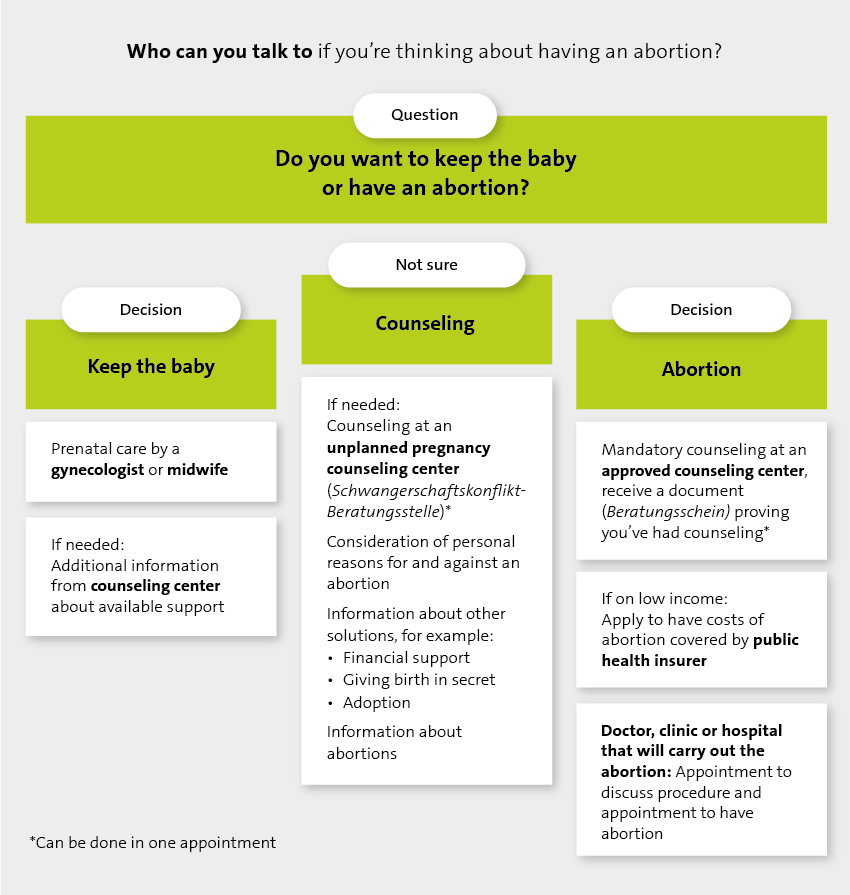Before an abortion

In Germany, women who are considering an abortion have to comply with legal requirements. There are time limits for certain things so it’s important to make appointments and get the necessary documents in time.
A woman can have an abortion if she has had counseling from a government-approved counseling provider at least three days before the abortion and if no more than 12 weeks have passed since she became pregnant. That means no later than the end of the 14th week of pregnancy, starting from the first day of her last period.
This article only covers abortions that fall under the counseling requirement mentioned above. Other rules apply if the abortion is for medical reasons or the pregnancy is the result of a crime.

